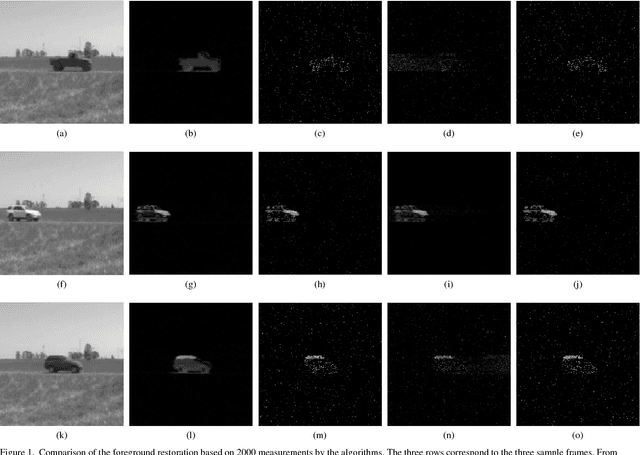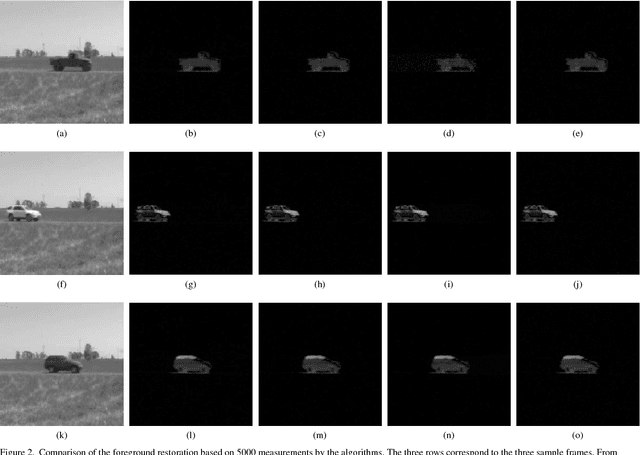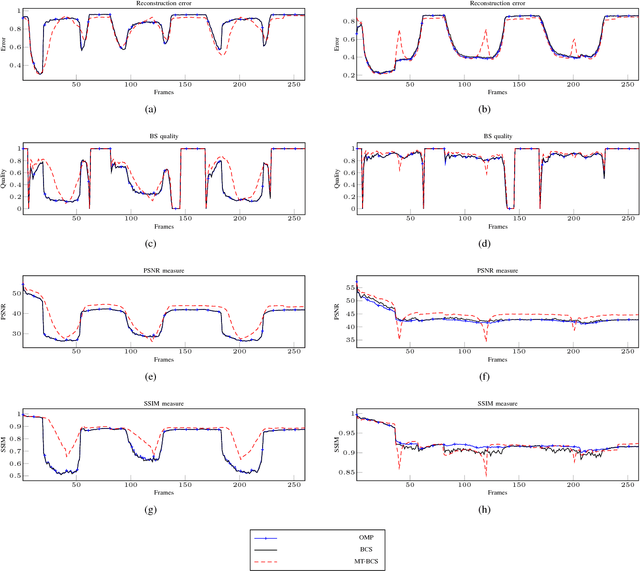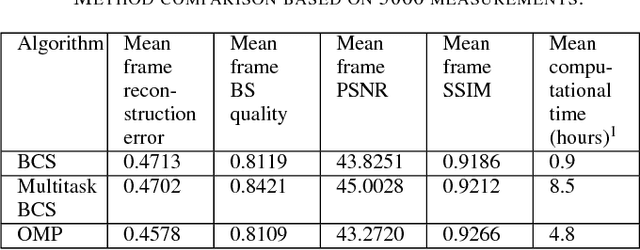Compressive Sensing Approaches for Autonomous Object Detection in Video Sequences
Paper and Code
Apr 27, 2017



Video analytics requires operating with large amounts of data. Compressive sensing allows to reduce the number of measurements required to represent the video using the prior knowledge of sparsity of the original signal, but it imposes certain conditions on the design matrix. The Bayesian compressive sensing approach relaxes the limitations of the conventional approach using the probabilistic reasoning and allows to include different prior knowledge about the signal structure. This paper presents two Bayesian compressive sensing methods for autonomous object detection in a video sequence from a static camera. Their performance is compared on the real datasets with the non-Bayesian greedy algorithm. It is shown that the Bayesian methods can provide the same accuracy as the greedy algorithm but much faster; or if the computational time is not critical they can provide more accurate results.
 Add to Chrome
Add to Chrome Add to Firefox
Add to Firefox Add to Edge
Add to Edge